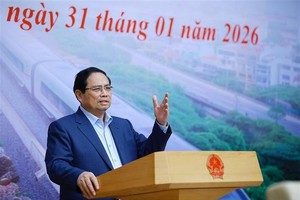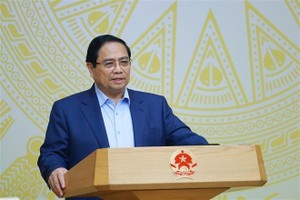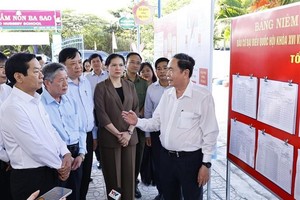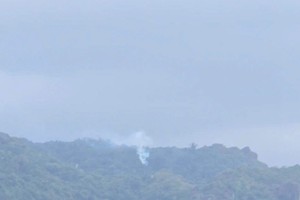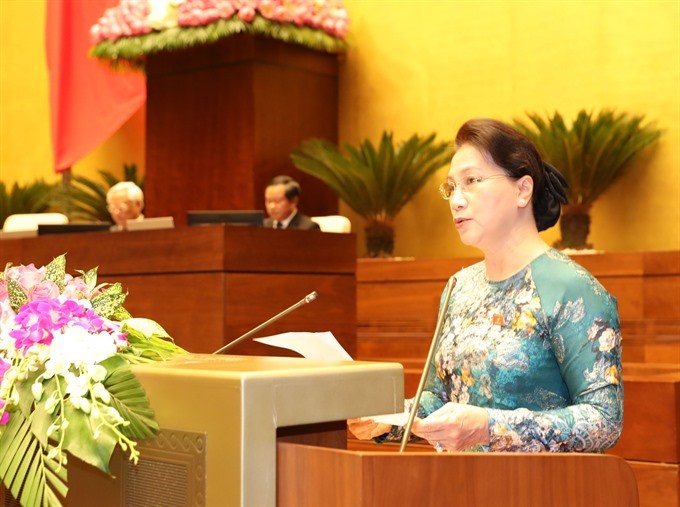
In her closing remarks at the third plenary session of the 14th National Assembly, she noted that deputies had devoted most of the time to discuss and pass 12 laws and 12 resolutions. Six other bills were also discussed.
Ngan said that the legislature has yet to pass the Planning Law due to some contentious content. The bill needs to be reviewed further to ensure its quality and feasibility, she said.
On the Long Thanh International Airport – an important project in the southern region, the NA agreed to split land reclamation, compensation and relocation work into a component project with the aim of expediting progress, she noted.
The NA also stressed the need to ensure social welfare and stable life and production for residents in the project area.
During the session, legislators also heard the Government’s supplementary report on the implementation of socio-economic tasks in 2016 and the first months of 2017.
While appreciating the Government’s active management work, NA deputies also identified limitations and weaknesses in several sectors as well as potential risks and challenges facing the country, she said.
The legislature especially asked the Government to employ more drastic measures to tighten financial discipline in the management of State budget spending and collection, stressing the need to reduce overspending and ensure that public debt stays within safe limit.
A legislature ‘of discussion’
Ngan highlighted the success of questions and answer sessions which tackled four main issues: agriculture and rural development; culture, sports and tourism; health; and investment and planning.
She said the deputies actively participated in discussions with Government members and other deputies on contentious issues. She praised cabinet members for offering direct explanations on key issues during discussions on draft laws, resolutions and reports.
This contributed to creating a democratic, responsible and constructive working environment, increasing the quality of the session.
The energetic and candid exchanges marked a gradual transformation of the legislature from one of “reporting” to that “of discussion”, Ngan said, noting that the NA had adopted a resolution on Q&A activities.
She asked deputies to be more active in law-making and monitoring activities and organise more meetings with voters to listen to their opinions and aspirations after this session.
Bad debt settlement
Earlier yesterday, the NA approved a new resolution on settling bad debts of credit institutions, a move long awaited by the banking sector.
The resolution will be valid for 5 years, starting August 18 this year. It is expected to ease the bad debt burden, often called the “clotted blood” of the economy.
It sets a target of reducing the bad debt of credit institutions to 3 per cent of the national debt by 2020.
The resolution allows banks to apply abridged procedures to settle disputes relating to mortgaged assets, giving them more authority to liquidate or sell the debtors’ assets.
An important but controversial issue has been tackled by the resolution – the time frame for settling bad debts. It says only bad debts that arose before August 18 are subject to settlement regulations of the resolution.
After this date, it says the central bank should step up structural reform of the credit institutions, promulgate higher bank management and risk management standards that comply with international regulations. These steps are necessary to minimise the amount of new bad debts, the resolution says.
It says the State budget will not be used for bad debt settlement. Agencies, organisations and individuals who commit violations that result in bad debts or during the bad debt settlement process will be held liable.
Credit institutions and branches of foreign banks must buy/sell or settle bad debts and collaterals in transparent manner, at market prices, the resolution says.
Public assets
With 93.69 percent of ‘yes’ votes, the NA also passed the revised Law on Management and Use of Public Assets.
The State’s number stockpiles, which include number plates of cars, motorbikes, vessels, airplanes, numbers of ID cards, passports, etc. are regarded as a State resource.
The NA has asked the Government to come up with detailed regulations to make use of each stockpile.
On the auctioning of licence plates for vehicles, the law states that the successful bidder is not allowed to sell the license plate he/she buys.
Earlier, the Ministry of Public Security had announced that it had received approval to auction special plate numbers in five big cities.
The law says public agencies/organisations are can lease their unused buildings/facilities or co-operate with other partners to exploit them commercially only after receiving approval from authorised agencies.
The use of the assets for new purposes must not affect the functions and tasks assigned for the agencies/organisations by the State, or affect State ownership of the assets, the law states.
The law will take effect on January 1 next year.




